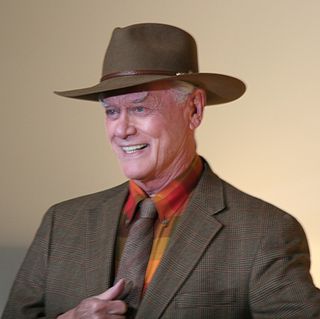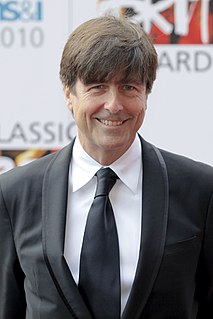A Quote by Annie Potts
I've always declined to speak about things I don't think are anybody's business, and what I always get from the interviewers is, 'Well, you know, we have to ask those things.' I say, 'Well, maybe you do, but I don't have to answer them.'
Related Quotes
There's always peripheral things that you like that you don't know, but starting with whatever his British influences are, are some of my favourite artists, and the American things are what I grew up on as well. In the end, for me, it's those foundations of the music business - those things that are a lot of the foundations of what music today is. You can hear a bit of all of those things that we talk about in almost all music today.
I think when people speak about faith, they always get stuck when they're starting to speak about the terrible things that happen in the world, and I always know, even in the Torah, they're always speaking about it, that if there is fifty percent of love, there is fifty percent of hate, they are always in perfect balance.
When you write something you know, you're making a story that will work, whether or not there's bits taken. It's always funny to me when people say, 'Well, it's clearly autobiographical,' and I say, 'Well, how do you know my autobiography?' Certainly, there are things that are connected, but I just think it's a very interesting assumption.
Consider the cattle, grazing as they pass you by. They do not know what is meant by yesterday or today, they leap about, eat, rest, digest, leap about again, and so from morn till night and from day to day, fettered to the moment and its pleasure or displeasure, and thus neither melancholy nor bored. [...] A human being may well ask an animal: 'Why do you not speak to me of your happiness but only stand and gaze at me?' The animal would like to answer, and say, 'The reason is I always forget what I was going to say' - but then he forgot this answer too, and stayed silent.
Poor dog! I've a strange feeling about the dumb things as if they wanted to speak, and it was a trouble to 'em because they couldn't. I can't help being sorry for the dogs always, though perhaps there's no need. But they may well have more in them than they know how to make us understand, for we can't say half what we feel, with all our words.
To me, the housewife who puts her teacups unwashed in the sink because her husband won't wash them, is political. Every act is political: the things you do, as well as the things you omit doing; the things you refuse to do; the things you fail to do; the things you say, as well as the things you don't say.
You can always hear a director saying, 'Well I don't really know what this piece is saying, so therefore, I reject it.' There are any number of things you can anticipate going wrong, and sometimes they go right. But I think the things you like most are the things that get rejected first. That's just how things work.




































